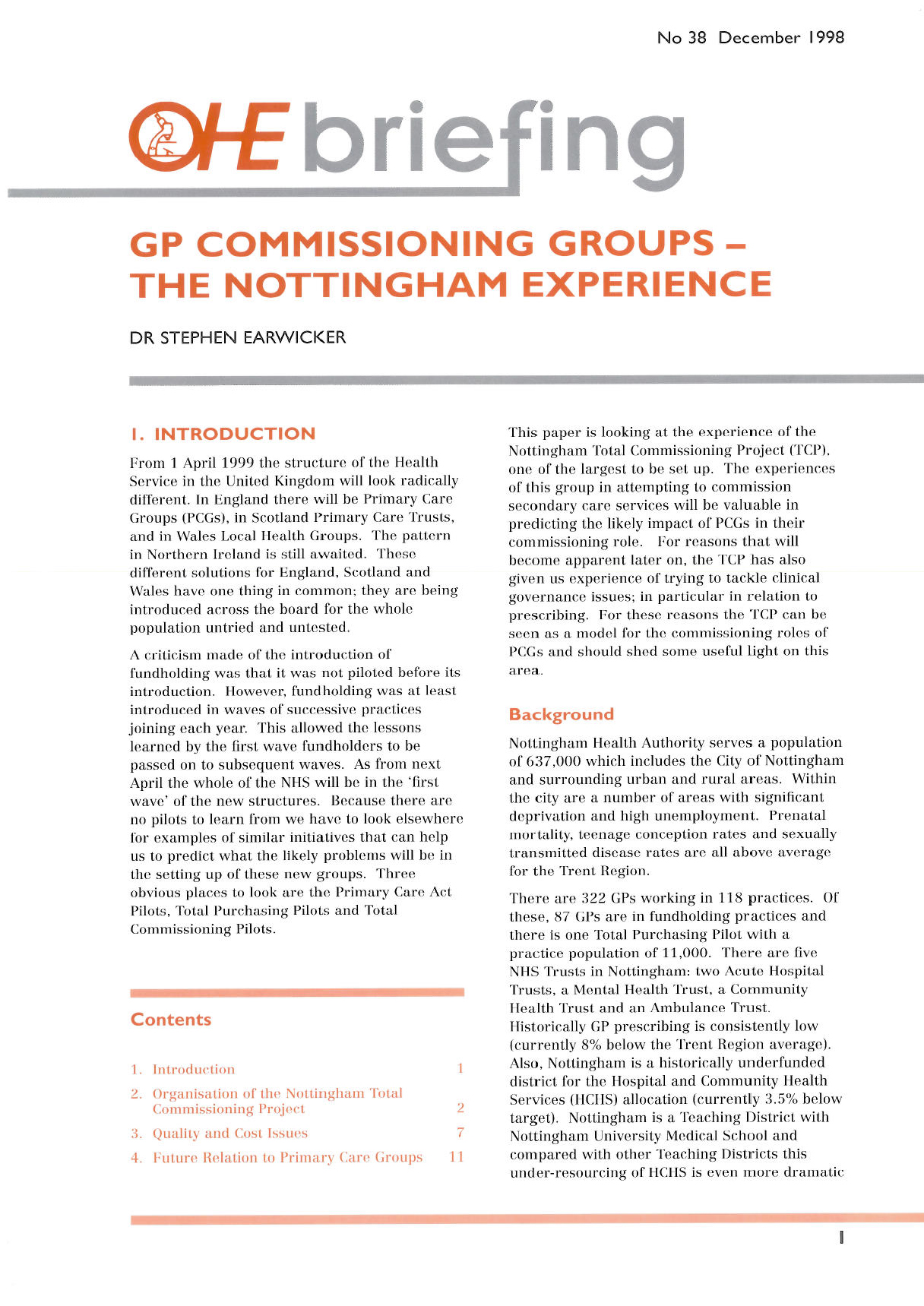Socio-Economic Value of Adult Immunisation Programmes

From 1 April 1999 the structure of the Health Services in the United Kingdom will look radically different. In England there will be Primary Care Groups (PCGs), in Scotland Primary Care Trusts, and in Wales Local Health Groups. The pattern in Northern Ireland…
From 1 April 1999 the structure of the Health Services in the United Kingdom will look radically different. In England there will be Primary Care Groups (PCGs), in Scotland Primary Care Trusts, and in Wales Local Health Groups. The pattern in Northern Ireland is still awaited. These different solutions for England, Scotland and Wales have one thing in common; they are being introduced across the board for the whole population untried and untested.
A criticism made of the introduction of fundholding was that it was not piloted before its introduction. However, fundholding was at least introduced in waves od successive practices joining each year. This allowed the lessons learned by the first wave fundholders to be passed on to subsequent waves. As from next April the whole of the NHS will be in the ‘first wave’ of the new structures. Because there are no pilots to learn from we have to look elsewhere for examples of similar initiatives that can help us to predict what the likely problems will be in the setting up of these new groups. Three obvious places to look are the Primary Care Act Pilots, Total Purchasing Pilots and Total Commissioning Pilots.
This paper is looking at the experience of the Nottingham Total Commissioning Project (TCP) one of the largest to be set up. The experiences of this group in attempting to commission secondary care services will be valuable in predicting the likely impact of PCGs in their commissioning role. Or reasons that will become apparent later on, the TCP has also given us experience of trying to tackle clinical governance issues; in particular in relation to prescribing. For these reasons the TCP can be seen as a model for the commissioning roles of PCGs and should shed some useful light on this area.
GP Commissioning Groups – The Nottingham Experience
Earwicker, S.
(1998) GP Commissioning Groups – The Nottingham Experience. OHE Briefing. Available from https://www.ohe.org/publications/gp-commissioning-groups-nottingham-experience/